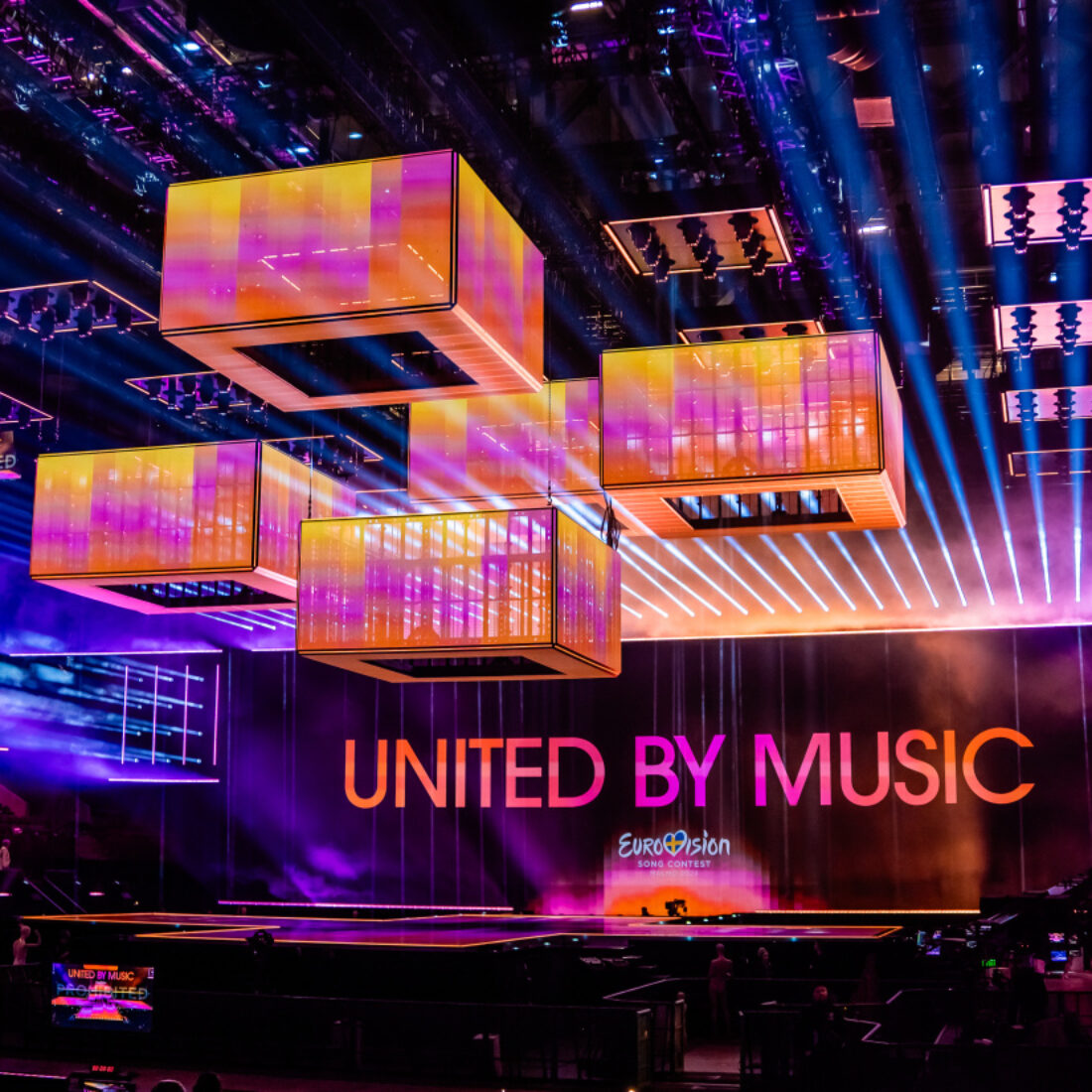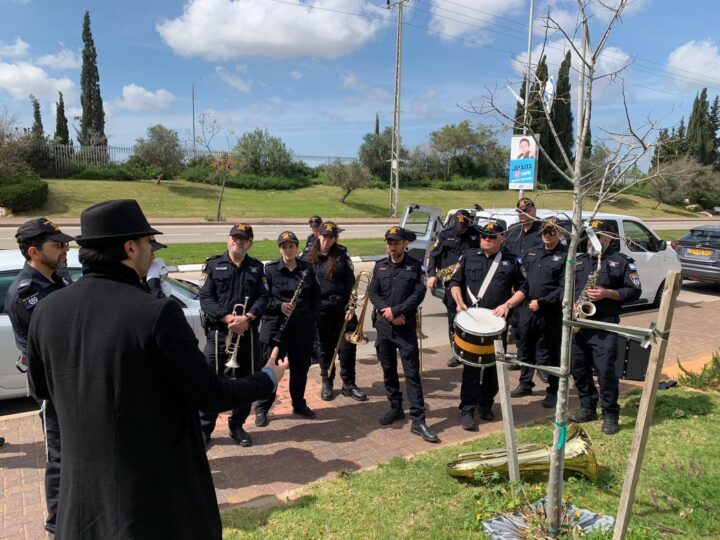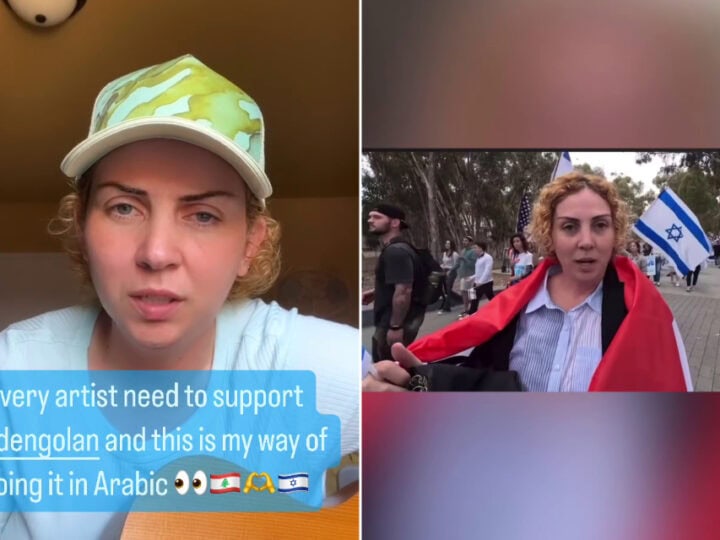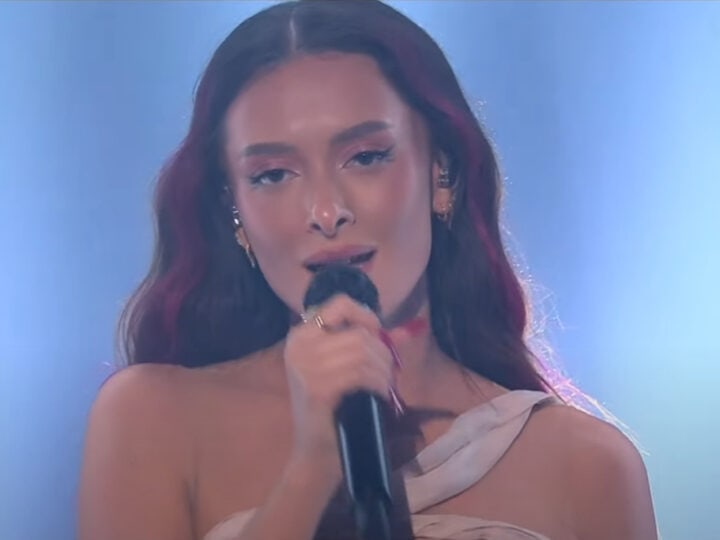This year marks 51 years since Israel first participated in the Eurovision Song Contest.
Since 1973, Israel has won the competition four times, in 1978, 1979, 1998 and 2018. To date, Israel also holds the record for most participations and most wins in Eurovision without ever coming in last.
The 2024 contest takes place in Malmö, Sweden, from May 7-11, with Eden Golan representing Israel. Singers from 37 countries are participating.
Amid so much controversy surrounding Israel’s participation in this year’s contest due to the war in Gaza, let’s not forget that the Jewish state has always managed to captivate the European audience with its stellar song entries.
Here is ISRAEL21c’s list of the best songs Israel has presented at Eurovision up till now:
10. ‘A-Ba-Ni-Bi’ by Izhar Cohen and Alphabeta (1978)
It’s only fair to start off the list with Israel’s first ever Eurovision win. Five years after its first-ever appearance, Israel came out on top during the 1978 contest in Paris.
The song’s chorus, written in the Hebrew version of Pig Latin – ani ohev otach/aba-nibi obo-hebev-obo-tabach translates simply as “I love you.”
The song’s unusual sound stood out among the sea of other entries and won the hearts of the audience members and judges. It also became a hit outside of Europe, getting radio play in Thailand in the late ’70s.
9. ‘Feker Libi’ by Eden Alene (2020)
“Feker Libi” performed by Eden Alene is an official Eurovision entry that never was.
In early 2020, Alene (who won “The Next Star for Eurovision” reality show) was all set to represent Israel in the song contest that May. Doron Medalie, the musical mastermind behind Netta Barzilai’s victorious 2018 song “Toy,” penned “Feker Libi,” which incorporates English, Amharic, Hebrew and Arabic.
But then, Eurovision was scrapped due to the Covid-19 pandemic.
In 2021, when Eurovision returned, most countries selected a different representative. The Israel Broadcasting Association, however, decided that Alene should represent Israel again.
However, that year’s entry, “Set Me Free,” lacked the unique flavor of “Feker Libi.” Alene ultimately finished 17th. One can only guess what could’ve been had “Feker Libi” been given the song to beat.
8. ‘Chai’ by Ofra Haza (1983)
Although this song came out over 40 years ago, it appears to be more relevant now than ever.
“Chai,” which translates as “alive” from Hebrew, celebrates life and emphasizes resilience. Penned by Israel’s most prolific lyricist of all time, Ehud Manor, the song was written during a time of political turmoil, social unrest and security instability.
The song’s upbeat tempo made it an instant hit in Israel. In Eurovision, however, Haza came in second behind Luxembourg.
The 1983 Eurovision was held in Munich, Germany, 11 years after 11 Israeli athletes were murdered by members of the PLO’s Black September group at the Summer Olympics in Munich.
Years later, it was reported that Haza chose to have five dancers with her onstage during the performance to symbolize six million Jews murdered in the Holocaust.
7. ‘Unicorn’ by Noa Kirel (2023)
It took many by surprise when in late 2022 it was announced that an accomplished Israeli pop star Noa Kirel was to represent Israel at the following year’s Eurovision. Especially given the fact that for the past few years the representative was picked via a reality show.
Once Israelis finally had the glimpse of Kirel’s song entry, however, all questions were put to rest. “Unicorn,” co-written by Medalie, emphasizes the power of being Jewish as well as being a woman.
Leading up to the Grand Final in Liverpool, Kirel was among the favorites to win. Ultimately, despite putting on a show-stopping performance, the songstress finished third behind crowd favorite entries from Finland and Sweden.
6. ‘Hallelujah’ by Milk and Honey (1979)
“Hallelujah” is believed to be the only winning Eurovision song to date that touched on the theme of religious faith.
The lyrics of the ballad express gratitude to God over the creation of the world, and all the wonderful things in it.
“Hallelujah” not only won the contest that year, but it was the second year in a row in which Israeli took the top prize. The event was held in Jerusalem because of the previous victory.
Since then, the song has become a certified Israeli classic. It was performed by Milk and Honey’s original lead vocalist, Gali Atari, at Israel’s official 70th Independence Day celebrations in 2018.
5. ‘Golden Boy’ by Nadav Guedj (2015)
Paris-born Guedj was only 17 when he won “The Next Star for Eurovision” and was selected as Israel’s representative for the 2015 Eurovision in Vienna, Austria.
“Golden Boy,” also written by the musical virtuoso Medalie, became Israel’s first entry with lyrics entirely in the English language. Despite putting on a dynamic performance in the Grand Final, Guedj finished a disappointing ninth.
The song, however, became a hit not only in Israel, but across many countries in Europe, where it charted in the top 100.
Fun fact: Eleni Foureira from Cyprus, who competed in the 2018 Eurovision alongside Netta Barzilai, covered “Golden Boy” in the summer of 2015, with the lyrics translated into Greek.
4. ‘Ey Sham’ by Ilanit (1973)
Ilanit’s “Ey Sham,” translated from Hebrew as “somewhere,” was Israel’s first Eurovision entry and was co-written by Manor.
The song talks about hope of finding utopia “somewhere,” while in reality we may be far removed from it. The song came out seven months after the Munich massacre and six months before the Yom Kippur War.
Ilanit, who had earlier received an offer from Germany to represent the country, finished fourth and won the “Singer of the Year” award later that year.
3. ‘Kan’ by Duo Datz (1991)
“Kan” (Hebrew for “here)” would probably have been disqualified for alleged political undertones if it were to be submitted to the Eurovision today.
But in 1991 it was still acceptable for Israeli artists to sing about the love for the motherland at international competitions.
The first lines of the song, penned by Uzi Chitman, poignantly declare: “Here is my home, here is where I was born/These are the friends I grew up with, and I have nowhere else in the world to go.”
The chorus has an even bolder message: “I was born here, and so were my children/Here I built my house with my own two hands/Here, you’re with me and here are my thousand friends/After 2,000 years the wanderings come to an end.”
Duo Datz, made up of the married couple Orna and Moshe Datz, finished third in the contest in Rome, with the song becoming a huge hit in Israel. Orna Datz went on to have an illustrious career as a singer, actress and TV presenter.
2. ‘Diva’ by Dana International (1998)
Dana International’s “Diva” is an ode to women and female mythology that mentions Victoria, the Roman goddess of victory; Aphrodite, the Greek goddess of beauty and love; and Egypt’s queen Cleopatra.
The transgender identity of Dana International (real name: Sharon Cohen) caused a lot of controversy in Israel and abroad ahead of the song contest. It was reported that police escorts were required at all times during her stay in Birmingham, England, where the 1998 contest was held.
The performance ultimately captivated the European audiences, giving Israel its third Eurovision win. “Diva” went on to become a smash hit all over continental Europe.
Furthermore, the song was chosen via a survey conducted by the European Broadcasting Union (EBU) in 2005 as one of the 14 most popular songs in the history of the competition.
1. ‘Toy’ by Netta Barzilai (2018)
Exactly 20 years after Dana International’s win, “Toy” brought Israel its fourth and most recent Eurovision victory.
Written by Medalie, the song was meant as an anthem of empowerment. It captivated Eurovision viewers and judges alike, winning the 2018 contest in Lisbon. Barzilai came in first, just ahead of Cyprus’ Foureira.
UK-based price-comparison service Uswitch two years ago published the results of a study that analyzed global YouTube views for each Eurovision entry to gauge the most popular ones. It found that “Toy” remarkably came in seventh, having garnered 46.6 million views.
The song was featured in the video game Just Dance 2019 and topped the charts across the world, including ranking No. 1 on Billboard’s US Dance Club Songs.

















